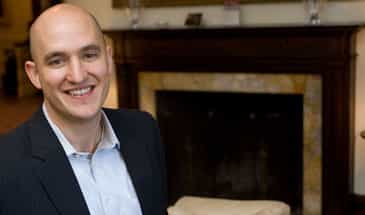Todd Rogers is a behavioral scientist who is an Assistant Professor of Public Policy at the Harvard Kennedy School. He is Director of the Student Social Support R&D Lab (www.s3rd.org).
Most of his current research sits at the intersection of education, psychology, judgment and decision-making, and behavioral economics. It aims to shed light on the cognitive, motivational, and social barriers to student achievement, and to develop low-cost scalable interventions that are informed by behavioral science. Many of his research projects explore the impact on student achievement of mobilizing the support of students’ family and friends. His education research takes place in a range of educational settings including K-12 schools, online universities, state and community colleges, test prep programs, and MOOCs.
Some other topics he studies include the cognitive and social factors that influence election participation (e.g., get-out-the-vote activities informed by psychological insights), and how time-inconsistent preferences can be leveraged to increase support for future-minded policies and choices (e.g., support for environmental legislation, ordering healthier foods, and watching high-brow movies).
Prior to joining the faculty at HKS, he was founding Executive Director of the Analyst Institute, LLC, which uses randomized field experiments and behavioral science insights to understand and improve voter communication program (click here for a story in The New York Times Magazine profiling the work of the Analyst Institute, and the book Victory Lab: the secret science of winning campaigns, which is based on that article). Todd is a Senior Researcher with the think tank ideas42. Todd was named a Rising Star by Politics Magazine for his work in the 2008 election cycle, and a 40 under 40 award winner by New Leaders Council for leadership in politics. He received his Ph.D. jointly from Harvard’s department of Psychology and Harvard Business School, and received his B.A. from Williams College where he majored in Religion and Psychology.
